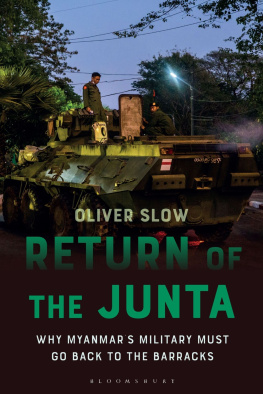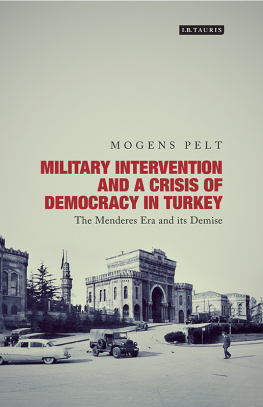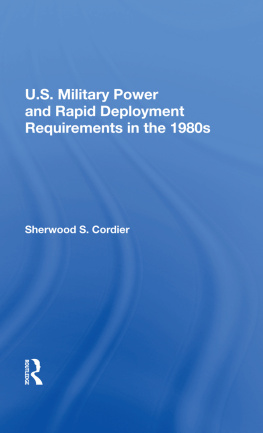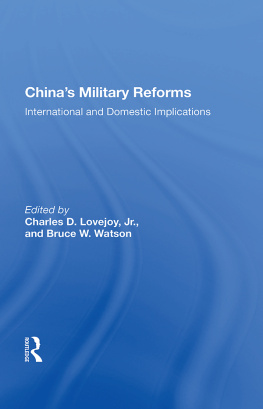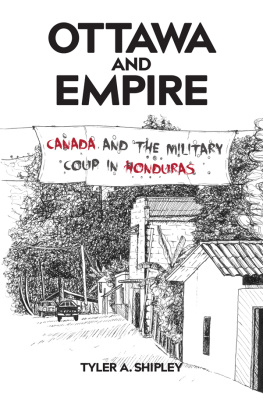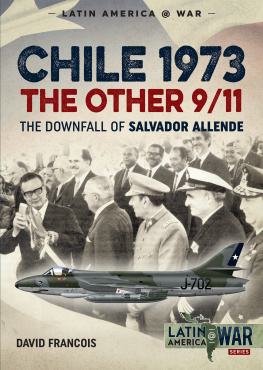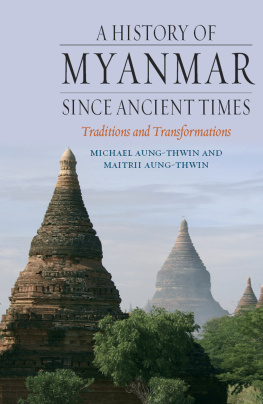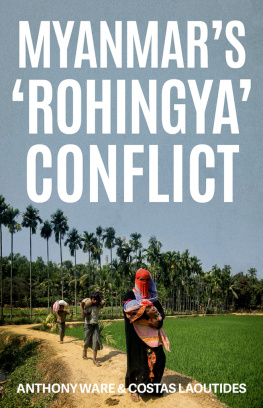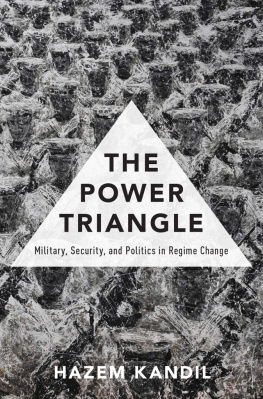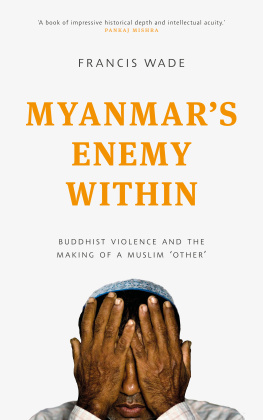
Return of the Junta
ASIAN ARGUMENTS
Asian Arguments is a series of books which explores life in Asia today. Written by experts from the fields of journalism, academia and politics, all of whom have considerable experience of living and working in Asia, the books reveal how citizens across the region from China to Vietnam are confronting problems such as environmental crisis, economic development and democracy.
Available now in the series:
The Trouble with Taiwan by Kerry Brown and Kally Wu Tzu Hui
China and the New Maoists by Kerry Brown and Simone van Nieuwenhuizen
Leftover Women: The Resurgence of Gender Inequality in China by Leta Hong Fincher
North Korea by Paul French
A Kingdom in Crisis: Thailands Struggle for Democracy in the Twenty-First Century by Andrew MacGregor Marshall
Chinas Urban Billion by Tom Miller
Ghost Cities of China by Wade Shepard
Myanmars Enemy Within: Buddhist Violence and the Making of a Muslim Other by Francis Wade
Thailand: Shifting Ground between the US and a Rising China by Benjamin Zawacki
For Dad, whose passion ignited my own.
Return of the Junta
Why Myanmars Military Must Go Back to the Barracks
Oliver Slow

Contents
There are numerous people who have helped with the writing of this book, in many different forms.
Im grateful to Eli Meixler, Sean Gleeson, Thomas Kean, Nicola Williams, Kiira Gustafson, Susan Law and all my colleagues at Frontier, as well as countless others, for their feedback or comments, which helped to form the books structure and content. Ronan Lee, Benjamin Zawacki and Francis Wade kindly offered advice on the publishing industry, a not insignificant aspect of this process, while Im also grateful to Joe Freeman and Dan Quinlan for the many late-night conversations about the book and its content. Much of this book was also written during my time working with ASEAN Parliamentarians for Human Rights (APHR), and Im grateful to the team there for their unending support, particularly Elise Tillet-Dagousset.
At Bloomsbury, David Avital, Olivia Dellow and Paul French displayed patience and offered useful advice throughout, while Im eternally grateful for the love and support offered by Mum, Ben, Ed and the rest of the family. Debs in particular has provided laughs, support and gentle ribbing throughout, while also tolerating both my incessant talking about this project and many lost weekends and evenings of me being strapped to the laptop.
Finally, I owe a huge debt of gratitude to the Myanmar people, including interviewees, friends, colleagues and neighbours, whose kindness and humility I will never forget.
Oliver Slow, who spent years living in and reporting on the country, has produced a gem of a book that describes and explains not only the background to the coup itself but how this hated institutions mindset and approach developed over time. He covers not only the headline stories of atrocities and violence but also critically important issues such as the militarys approach to education and identity politics. Return of the Junta is essential reading for anyone who wants to understand the critical struggle now underway for Myanmars future. Scot Marciel, former US Ambassador to Myanmar
Oliver Slows narrative draws you in as he dives into the twisted psyche of the Tatmadaw, documenting the ruthless excesses and xenophobia of successive military juntas culminating in the February 2021 coup. While this book laments how the outside world has failed the people of Myanmar, it also explores the reasons why the coup itself was a failure. Jonathan Miller, former Asia Correspondent, Channel 4 News
An urgent and necessary book Oliver Slows clear-eyed chronicle of how Myanmar reached this point of crisis is bolstered by illuminating first-hand accounts of pivotal events over the past decade, going beyond read-and-despair reportage to formulate a much-needed call to action. Emma Larkin, author of Finding George Orwell in Burma
Informed by almost a decade of reporting from Myanmar, Slow explains the toxic mix of paranoia, entitlement and sadism that makes up Myanmars ruling military. Accessible but unsparing in its retelling of the countrys tragic modern history, Return of the Junta also finds hope in the strength of its people. Ben Dunant, Editor-in-Chief of Frontier Myanmar
Return of the Junta is much more than a record of the militarys disastrous impact on Myanmar and its people. Oliver Slow lived in Myanmar at a tumultuous time of both great hope and hair-raising events of unspeakable violence. He captures not only the horrific crimes of the ruthless military but also the realities of daily life and the aspirations of Myanmars people. This book is a distinguished accomplishment that shows Slows solid knowledge of his subject as well as his compassion and integrity. It should be read by all who want to understand how Myanmars 2021 coup dtat came about and why popular resistance has never been stronger. Laetitia van den Assum, a former member of the Advisory Commission on Rakhine State (Kofi Annan Commission)
Incisive and penetrative reporting. Return of the Junta makes sense of a seemingly senseless crime: Myanmars 2021 coup, a disaster for the country and even the military itself. Patrick Winn, South East Asia correspondent for The World from PRX and author of Hello, Shadowlands
In deftly sketched prose, Slow describes how the military has woven itself into the very fabric of Myanmars social and political life, and details the painful and ongoing efforts of political activists and ordinary people to cast it aside. Rich with on-the-ground anecdotes and historical analysis, it presents a vital examination of the countrys tortured journey from independence to the troubled present. Anyone interested in whats happening in Myanmar today should read this book. Sebastian Strangio, author of In the Dragons Shadow
Carefully researched and well-told, this book illuminates Myanmars complex history leading up to its recent coup. Oliver Slow travels across Myanmar to shed light on the diversity and tenacity of its people. Celia Hatton, Asia Pacific Editor, BBC
When the then-ruling military junta in Myanmar stood down in early 2011, initiating a series of reforms supposed to move the country away from decades of isolationist rule, it handed power to a quasi-civilian government filled with former generals.
This new government, headed by President Thein Sein, would rule according to a new Constitution, which had been passed in a sham referendum three years earlier, as part of the militarys transition to genuine, disciplined, multi-party democracy.
The new charter, replacing one from 1974, divided the country into seven regions and seven states of equal status. The seven regions comprising Ayeyarwady, Bago, Magwe, Mandalay, Sagaing, Tanintharyi and Yangon are located in the countrys centre and are typically dominated by the Bamar-majority population, while the seven states Chin, Kachin, Kayah, Kayin, Mon, Shan and Rakhine hug the countrys periphery and are mainly home to ethnic minorities. The capital is in the very centre, Nay Pyi Taw.
Despite the military coup of February 2021, the country is still ruled according to this system.
Regarding the use of local names, for the large part I have used Myanmar over Burma, because this is the name most commonly used today by those inside the country. In 1989, the military junta changed the official name of the country, and those of several cities and regions, from the English to the Myanmar version. When describing events before this change, I have used the name that was in use at the time (Burma, Rangoon etc.). The countrys majority ethnic group has variously been called Bamar, Burman and Burmese; I have opted for Bamar.
Next page
